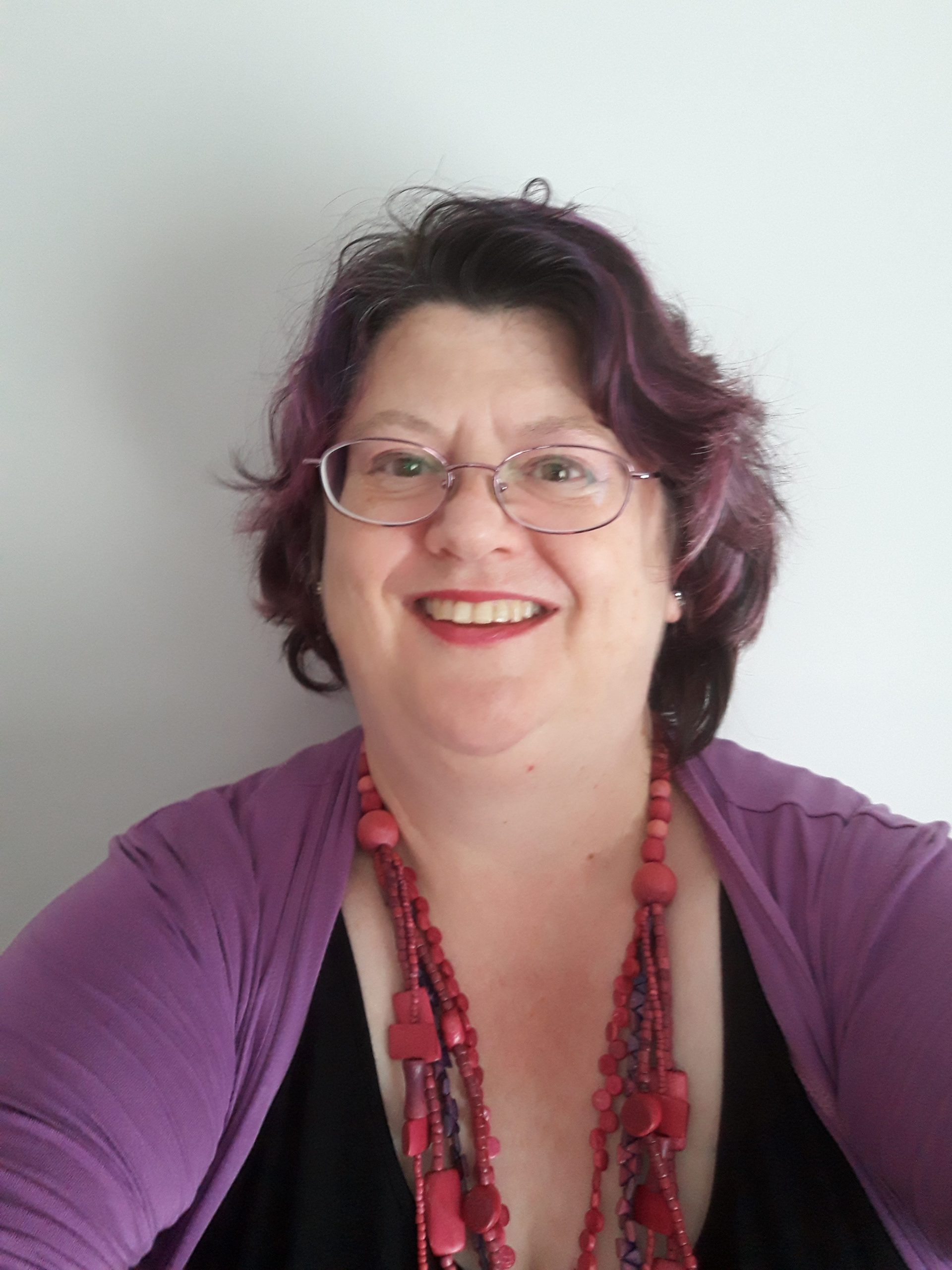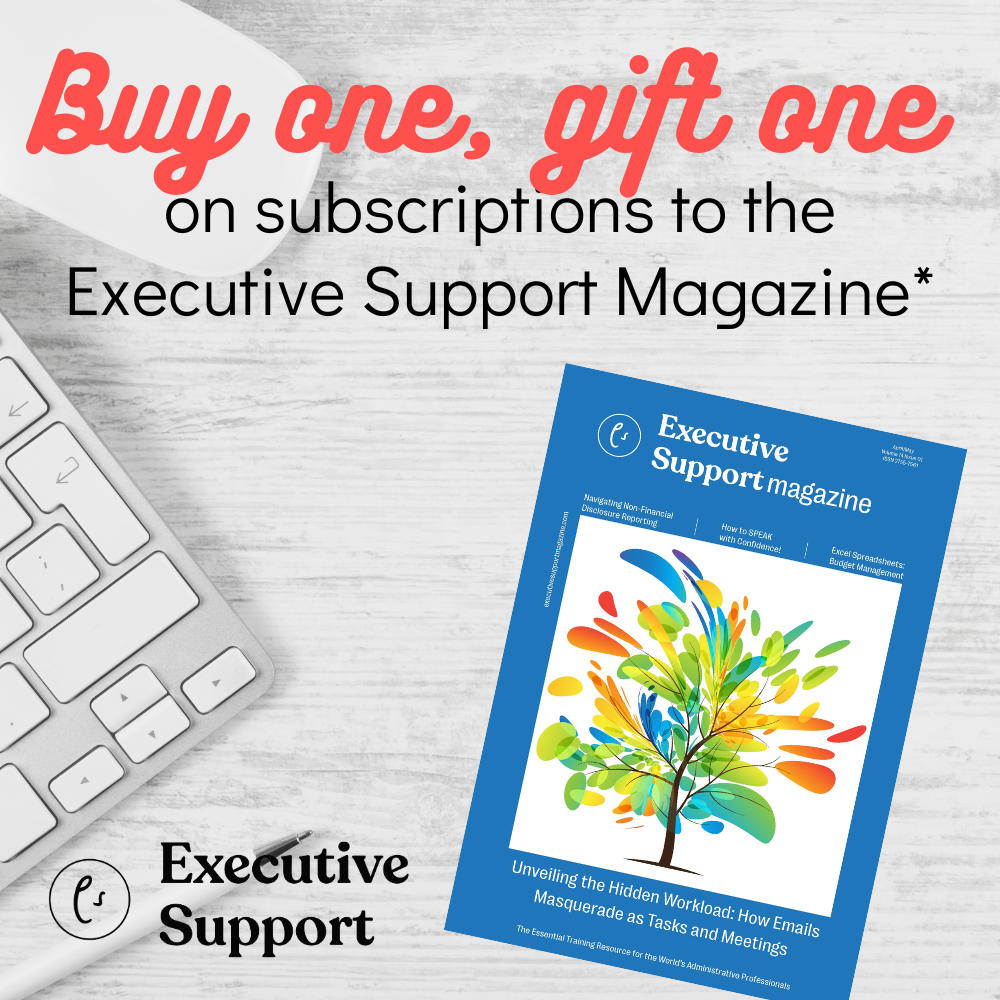
Alison McKessar is the National President of the Association of Administrative Professionals New Zealand (AAPNZ)
Can we start with a little background information? Where are you from and what is your current role?
I live in the capital city of Wellington, New Zealand (proudly born and bred). I left high school vowing and declaring that I didn’t want to be a secretary, even though I took shorthand typing as a subject. After my first job (which lasted only six months) I thought that perhaps I should use those keyboard skills and have never looked back.
For the last six years I have worked for the Australian and New Zealand College of Anaesthetists as the training & education coordinator in the New Zealand national office. It’s not a true assistant role; rather a senior administration one. I deal mostly with doctors who are training to become anaesthesia specialists, and their supervisors of training. I’m responsible for all the exams that happen in New Zealand being well organised, and I support a couple of committees. I also provide admin support for a number of training courses and there’s a lot of travel bookings. The role has times where it’s frantically busy balanced by times when it’s quite quiet. It’s a small office with just seven of us and, although we each have our own specialised roles, we all help each other out when necessary.
I love my job because I’m really interested in all things medical and this role allows me to interact with doctors and medical content, plus I occasionally get to work in hospitals.
What is your background?
I have an assistant background which has provided lots of transferable skills that I use in my current role, such as project and event management, meeting coordination etc. I’ve been fortunate to work for some fairly significant organisations, namely PricewaterhouseCoopers and the Reserve Bank of New Zealand, both of which have honed my service provision skills and professionalism.
In one lifetime, I used to do public speaking as a hobby and have won a couple of competitions; the Ted Gill trophy for oratory and the ‘IMPS’ speaking club’s trophy for prepared speech.
I’ve also been involved in amateur musical theatre for a number of years. The last show I did was Jesus Christ Superstar in 2015 with Upper Hutt Musical Theatre. All that is on hold at present while I concentrate on my role with AAPNZ. I still sing along to the radio (especially when driving) and volunteer for front of house duties when I can, to maintain contact with the theatre group. I will be back on stage one day!
The public speaking and stage work deserve a mention here, firstly, because they contribute immensely to who I am but also because they’re transferrable skills that I have used at work and for AAPNZ. I would actually recommend practising public speaking and presentation skills for all administrative professionals. You never know when it might come in handy!
How did you become an Assistant?
As alluded to above, I felt I should use the keyboard skills I gained at high school. I was working in an admin role at the NZ Wool Board when I was seconded to the international liaison unit to assist with organising some international delegations. I ended up staying in the unit supporting the manager who was also the Board Secretary. (Back in those days I also had to pour the tea and coffee for the board’s directors)! That’s when my assistant journey really started.
What are the main changes you have seen in the time you have been an Assistant?
Definitely the vast improvements in technology. The first computer I worked on was one big unit (screen and keyboard as one machine) and the screen only had green lettering. No pictures, either! Oh, and the Internet and mobile phones hadn’t been invented yet! People were still allowed to smoke in the office back in those days, too.
Before the advent of email, when I was working for a patent attorney firm, we would receive faxed documents several pages long on thermal paper. We would have to completely retype the document and then pair up with someone to read through word by word, including punctuation, to ensure it was an exact copy. Can you imagine having the time to do that nowadays? Besides which, there’s technology for that task.
I guess there’s a not so positive side of technology and that’s that everyone is always switched on or connected, and there’s an expectation for assistants to be constantly available. I don’t think it’s healthy to be checking emails or having to do work during the weekend. People don’t know how to do ‘down time’ and many assistants I know have very little ‘me’ time. Making time to chill out is vital for the mind and body.
The other positive change I’ve seen is how assistants work with their managers. It used to be a far less involved role and now assistants work side-by-side with their managers in a way that is far more meaningful.
You are the National President of the Association of Administrative Professionals New Zealand (AAPNZ). Tell us about that.
Yes, I’m still not sure how that happened!
I’ve been a member of AAPNZ Wellington Group since 2005. I joined the Group Management Team in 2007 and was Group President for 2010-2012. It was suggested to me in 2015 that I should stand for National President the following year so I did, which turned out to be a really good idea as I’ve totally enjoyed the role. It’s offered me heaps of professional development and I’ve really upped my networking game. I’ve met some amazing people and forged some lifelong friendships. It’s also provided me with international opportunities which is phenomenal.
There are nine groups around the country providing professional and personal development to our members as well as networking opportunities. Our membership comprises anyone working in an administrative role, so PAs, EAs, Receptionists, Office Managers, Coordinators, etc.
AAPNZ is a totally voluntary organisation. I have a fantastic national executive team working alongside me to progress the Association and benefits for its members. Sometimes I feel like I am working two full-time jobs, but it’s the passion for the profession that keeps me going. I only wish I could do more.
How important do you think Associations and networks are to the career of an Assistant and why?
The things that administrative professionals can learn off each other has no bounds; whether it be sharing technical knowledge or tangible skills or talking through how different people would handle certain situations. It provides a platform for admins to brainstorm solutions and a ‘tribe’ for them to belong to. Being an EA to a CEO, for instance, can be very isolating. Alternatively, you may be the only admin person within an organisation. Knowing that there are others out there who have your back and can provide support? Priceless!
Of course, there’s always the benefits of word-of-mouth when someone is looking for a new job or looking to hire. Additionally, the professional development opportunities provided by AAPNZ and Executive Secretary LIVE are incredibly worthwhile.
It frustrates me that there are administrative ‘professionals’ out there who don’t think they need any professional development; they’re missing out on so much! Learning must be a lifelong commitment.
You were the country representative for New Zealand at the recent World Administrators’ Summit. Tell us about that.
For a start, it was the ultimate networking experience, and a total honour to be there representing New Zealand. In the two days we had together, we achieved a massive amount of work – kind of what you would expect from a roomful of focused professional assistants!
It also made me realise how important it is to be thankful for what we have. I have totally had my eyes opened to the working conditions in other countries. There are people trying to do their work with sub-optimal electricity supplies, let alone a reliable internet connection. There are some countries that still have a long way to go with regard to respecting their administrative staff. I’m also thankful that work is plentiful in New Zealand; we have the luxury of looking for another job if our current one isn’t working out, or there is bullying etc. It’s why I’ve volunteered to assist with the Workplace Harassment international working group.
I’m really excited to be involved in organising the next World Administrators Summit being held in my home town of Wellington, New Zealand in 2020.
What are the changes that you believe face assistants in the future?
Again, the technology. Things are developing so fast that it’s really difficult to keep up. It’s going to be more important than ever to maintain a learning attitude. I think the assistant role is going to morph into something requiring more human skills and more brain power (problem solving, logistics, planning). Besides which, a robot is not going to be able to judge when the CEO may not be in the best of moods and shouldn’t be disturbed right now.
I also think that assistant roles are going to be even more vital to managers, especially with the prevalence of working from anywhere. Your manager could even live in a different country; that’s happening now.
Along the same lines of working from anywhere, we may see an increase in the virtual assistant or even contracting. Having a strong network is going to be more important than ever to counter the risks of isolation.
If we do end up working like this, it’s going to be more important than ever for assistants to make time for and learn how to relax!
What inspires and motivates you?
Wow – that’s a tough one. I don’t think about these things very often!
I’m a very creative person and, if I can, I like to have music on in the background. My happy place is in my craft room with my sewing machine surrounded by brightly coloured fabrics, or knitting/crocheting something.
For work, I need to be able to see where my role contributes to the overall purpose of the organisation. It’s one of the reasons I love my job. I find it very satisfying meeting a trainee when they first start out then at their first exam and then again at their finals. I get to follow their career from start to finish.
It’s also very inspiring for me to know that I’ve made a positive difference in someone else’s life. I recently mentored a friend’s daughter through a challenging time at work and helped her find a new role. She landed a great job at a significant organisation, so I was really happy for her.
I tend to enjoy tight deadlines, too. If there’s no pressure I am easily distracted and can procrastinate.
So, what’s next for Alison McKessar? Where do you want to be in five years’ time?
I don’t think about this much, either! I’m more of a ‘live in the moment’ type of person.
Having said that, one day I would love to be one of the international presenters for Executive Secretary LIVE. The opportunity to make a difference for administrators all over the world is a very appealing one. Watch this space!













